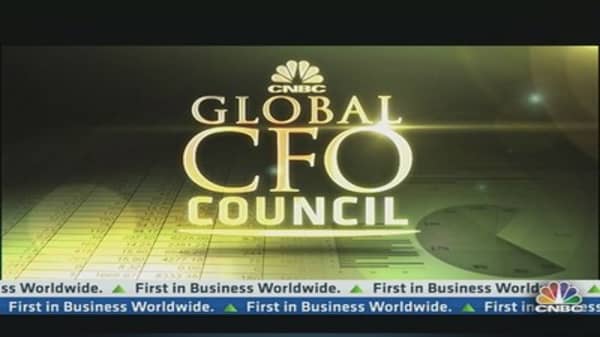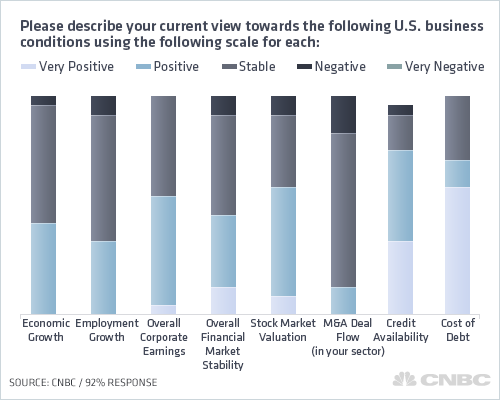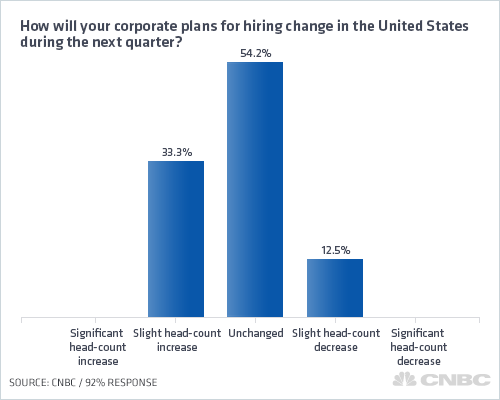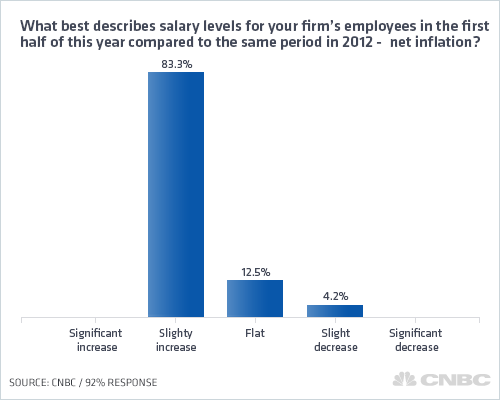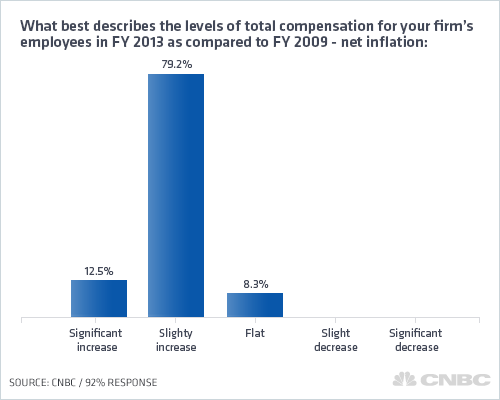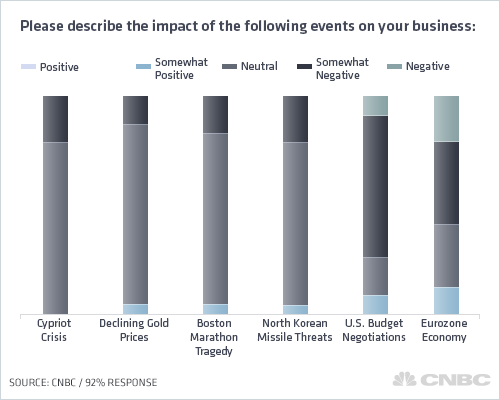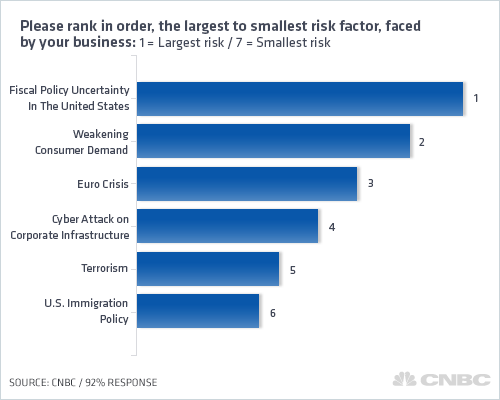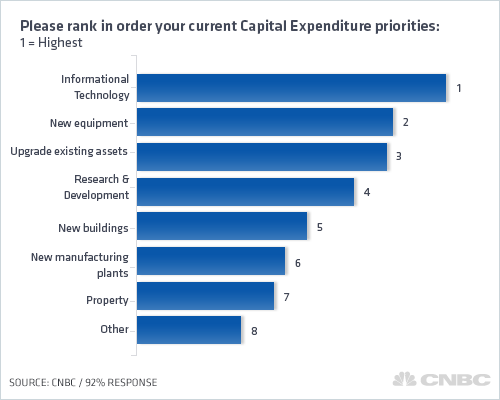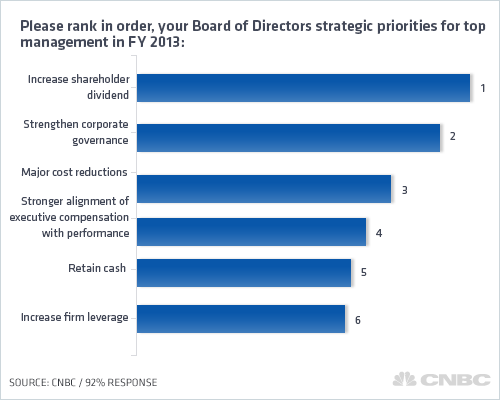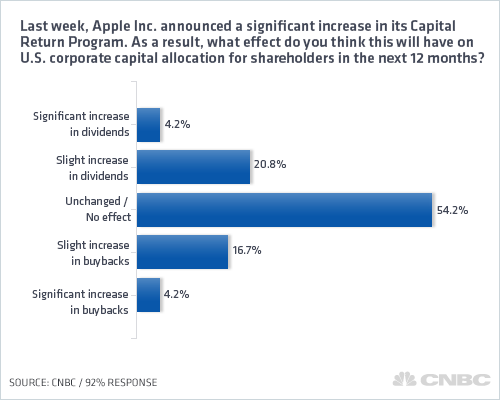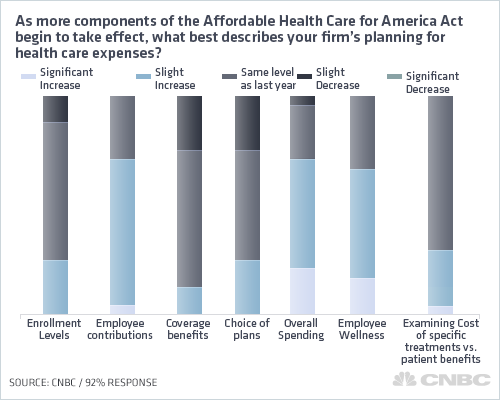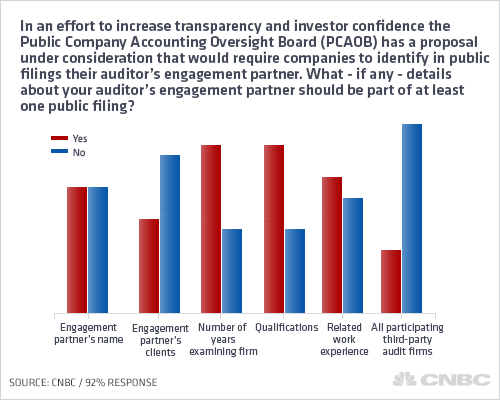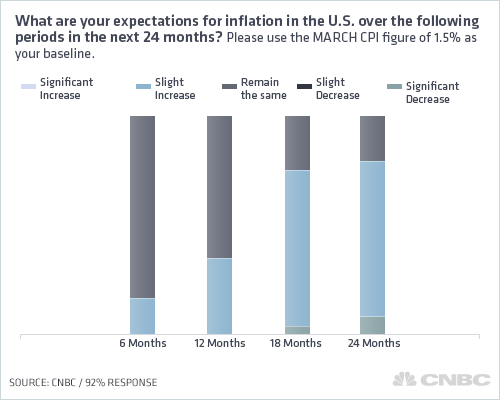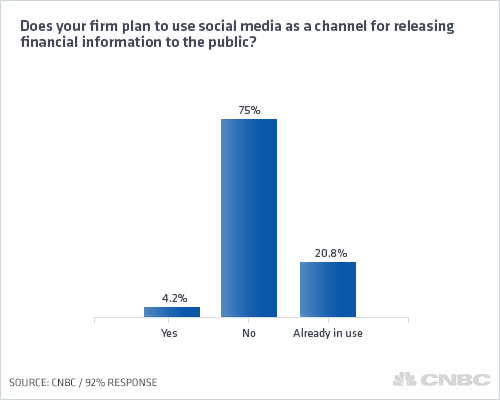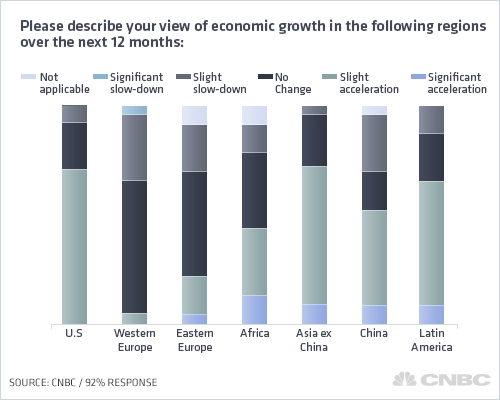Despite stellar earnings performances by U.S. corporations and a stock market in record territory, the overall economic picture remains stable perhaps with some modest improvements.
That's the outlook from the newest survey of the CNBC Global CFO Council, a group of chief financial officers representing a broad swath of the economy and controlling roughly $1 trillion in assets.
Members of the council come from a wide range of sectors, including retail, banking, energy and transportation. CNBC surveys this group of 25 CFOs on a regular basis.
About 80 percent of the council said the Federal Reserve should maintain current rate policy, up from a 60 percent approval rating in our last survey in late March. However, the council is split on how much improvement shareholders will see in corporate growth during this quarter.
There is a small appetite to start spending the record amount of cash retained by companies. On average, the council will increase capital expenditures by 7 percent over last year—mainly on information technology and new equipment. And while there are no outward signs of any significant improvement in hiring, the council says their employees' total compensation, including salaries, is rising.
More insights from the survey:
– CFOs, on average, are increasing their health care spending by 7 percent over last year.
– CFOs see U.S. inflation gradually increasing in 12 months∙
– About half the council will be hiring slightly more workers overseas than in the United States.
– A majority of CFOs thinks it is unlikely that all publicly traded firms in the U.S. will mandate a split between the roles of CEO and chairman.
– The council ranked Information Technology as the top spending priority.
– 75 percent of the CFOs have no plans to begin releasing financial information over social media.
The complete results of the CNBC Global CFO Council Survey can be found below.


